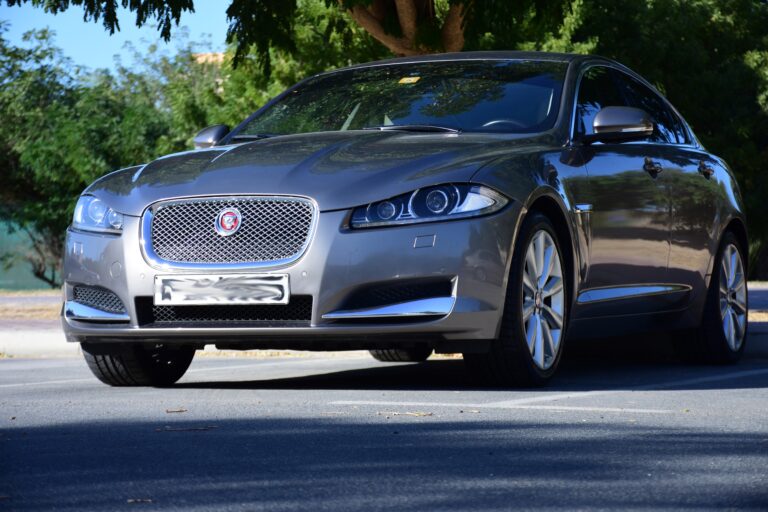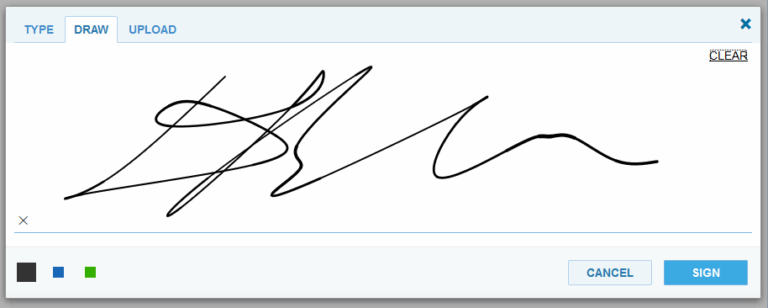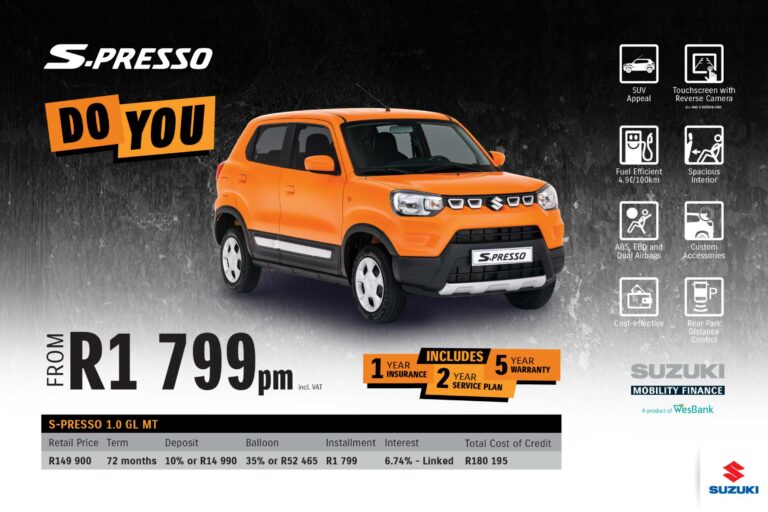Car Brands With P: A Comprehensive Guide to Automotive Excellence
Car Brands With P: A Comprehensive Guide to Automotive Excellence cars.truckstrend.com
The automotive world is a tapestry woven with diverse brands, each contributing its unique thread of innovation, luxury, performance, or practicality. Among the myriad of manufacturers, those whose names begin with the letter ‘P’ stand out for their distinct identities and significant contributions to the global car industry. From the roaring engines of hypercars to the quiet hum of electric vehicles, and from everyday commuters to luxury status symbols, the "P" brands offer an astonishing spectrum of automotive experiences. Understanding these brands is not just about memorizing names; it’s about appreciating their engineering philosophies, design languages, market positions, and the legacies they’ve built or are building. This guide delves into the fascinating world of car brands beginning with ‘P’, offering insights that help you navigate their offerings and understand their unique place in the automotive landscape.
The Powerhouses of Performance: Porsche and Pagani
Car Brands With P: A Comprehensive Guide to Automotive Excellence
When one thinks of performance and prestige, two "P" brands immediately spring to mind: Porsche and Pagani. They represent the pinnacle of automotive engineering, albeit catering to vastly different segments of the ultra-high-end market.
Porsche: Precision, Performance, and Pedigree
Origin and Philosophy: Hailing from Germany, Porsche AG is synonymous with high-performance sports cars, SUVs, and sedans. Founded by Ferdinand Porsche in 1931, the company’s philosophy has always revolved around combining exhilarating performance with everyday usability and luxury. Porsche cars are engineered for driving enthusiasts, offering a blend of power, handling, and sophisticated design that few can match.
Key Offerings and Innovation:
- The 911: The iconic rear-engined sports car, a benchmark for performance and timeless design, constantly evolving while retaining its distinctive silhouette.
- Cayenne and Macan: Porsche’s successful foray into the SUV market, proving that performance and utility can coexist without compromise. These models have significantly broadened Porsche’s appeal and financial stability.
- Panamera: A luxury sports sedan that offers four-door practicality without sacrificing Porsche’s performance DNA.
- Taycan: Porsche’s groundbreaking all-electric sports car, demonstrating the brand’s commitment to innovation and sustainability without sacrificing performance. It set new benchmarks for electric vehicle dynamics.

Driving Experience and Target Audience: Owning a Porsche is an experience defined by precision engineering, responsive handling, and powerful engines. Whether it’s the raw thrill of a 911 GT3 or the refined luxury of a Cayenne Turbo, Porsche vehicles offer an engaging and rewarding drive. Their target audience ranges from affluent enthusiasts seeking a high-performance daily driver to collectors appreciating automotive artistry.
Pagani: Art, Exclusivity, and Hypercar Excellence
Origin and Philosophy: Pagani Automobili S.p.A., an Italian manufacturer, stands in a league of its own. Founded by Horacio Pagani in 1992, the company’s philosophy is rooted in creating bespoke, ultra-exclusive hypercars that are as much works of art as they are engineering marvels. Each Pagani is meticulously crafted, often incorporating advanced composite materials and unparalleled attention to detail, making them highly sought after by the world’s wealthiest collectors.
Key Offerings and Exclusivity:
- Zonda: The first major model, produced from 1999 to 2017, known for its distinctive design, powerful Mercedes-Benz AMG engines, and numerous special editions.
- Huayra: Introduced in 2011, the Huayra continued Pagani’s legacy with even more advanced aerodynamics, exquisite interiors, and a twin-turbo V12 engine.
- Utopia: The latest masterpiece, unveiled in 2022, carrying forward the brand’s commitment to lightweight construction, powerful engines, and unparalleled craftsmanship.
Exclusivity and Target Audience: Pagani produces cars in extremely limited numbers, ensuring exclusivity and driving up their value. Each vehicle is custom-built to the client’s specifications, making every Pagani unique. The target audience comprises ultra-high-net-worth individuals and serious car collectors who desire the ultimate expression of automotive art and performance, often willing to pay millions for the privilege.
Mainstream Mobility and Modern Innovation: Peugeot and Polestar
Beyond the realm of high-performance and hypercars, the "P" brands also contribute significantly to mainstream mobility and the cutting edge of electric vehicle technology.
Peugeot: French Flair, Practicality, and a Premium Push
Origin and Philosophy: Peugeot, a venerable French automobile manufacturer, has a rich history dating back to 1810, initially producing coffee mills and bicycles before venturing into cars in 1889. Part of the Stellantis group, Peugeot is known for its distinctive French design, innovative features, and a balance of practicality, comfort, and driving dynamics. In recent years, Peugeot has been actively repositioning itself as a more premium brand within the mainstream market.
Key Offerings and Design Language:
- 208 and 308: Popular compact and supermini cars, celebrated for their stylish design, efficient engines, and distinctive "i-Cockpit" interior layout.
- 3008 and 5008: Award-winning SUVs that combine bold aesthetics with family-friendly practicality and advanced technology.
- 508: A sleek and elegant sedan and wagon, showcasing Peugeot’s design prowess and commitment to a more upscale feel.
- Electrification: Peugeot has embraced electrification, offering fully electric (e-208, e-2008) and plug-in hybrid variants across much of its range.
Driving Experience and Market Position: Peugeot cars are often praised for their comfortable rides, agile handling (especially with the small steering wheel of the i-Cockpit), and distinctive interiors. They appeal to a broad demographic looking for stylish, practical, and increasingly premium vehicles with a unique European feel.
Polestar: Electric Performance, Scandinavian Minimalism
Origin and Philosophy: Polestar began as Volvo’s performance tuning arm but was re-launched in 2017 as a standalone brand focused exclusively on high-performance electric vehicles. Headquartered in Sweden, Polestar combines Scandinavian minimalist design with cutting-edge electric powertrain technology and a strong emphasis on sustainability and digital integration.
Key Offerings and Unique Propositions:
- Polestar 1: A limited-production, high-performance plug-in hybrid grand tourer, serving as a halo car to establish the brand’s performance credentials.
- Polestar 2: The brand’s first mass-market fully electric vehicle, a fastback sedan that competes directly with the Tesla Model 3. It features Google’s Android Automotive OS for a seamless infotainment experience.
- Polestar 3 and Polestar 4: Upcoming electric SUVs that expand the brand’s portfolio, promising performance and advanced technology in a larger format.
Sustainability and Future Outlook: Polestar is committed to reducing its environmental footprint, aiming for a truly climate-neutral car by 2030 (the "Polestar 0" project). Their cars offer a refined, quiet, and powerful electric driving experience with a focus on intuitive technology. Polestar targets environmentally conscious, tech-savvy consumers who appreciate performance and minimalist design.
Regional Players and Historical Significance: Proton, Perodua, and Others
The "P" roster also includes important regional players and brands that, while no longer active, have left an indelible mark on automotive history.
Proton: Malaysia’s National Car
Origin and Philosophy: Proton Holdings Berhad was Malaysia’s first national car project, established in 1983. Initially reliant on rebadged Mitsubishi models, Proton aimed to foster local automotive manufacturing capabilities. While facing challenges, its acquisition by China’s Geely Holding Group in 2017 has revitalized the brand, bringing new platforms, technology, and a renewed focus on design and quality.
Market Focus: Proton primarily serves the Malaysian domestic market and select international markets, offering a range of sedans, SUVs, and hatchbacks that prioritize affordability and value.
Perodua: Affordable Mobility for Malaysia
Origin and Philosophy: Perusahaan Otomobil Kedua Sendirian Berhad, or Perodua, is Malaysia’s second national car manufacturer, established in 1993. It focuses on producing compact and affordable cars, often based on Daihatsu platforms. Perodua consistently holds a significant market share in Malaysia due to its competitive pricing, fuel efficiency, and low maintenance costs.
Market Focus: Perodua’s strength lies in its ability to cater to the mass market in Malaysia, offering accessible and reliable transportation.
Historical Mentions: Plymouth, Packard, and Panoz
- Plymouth: A defunct American automobile brand established in 1928 by Chrysler Corporation. Plymouth cars were known for their affordability and durability, popularizing features like hydraulic brakes. The brand was phased out in 2001.
- Packard: An American luxury automobile manufacturer founded in 1899, Packard was renowned for producing some of the most prestigious and technologically advanced cars of its era. It ceased production in 1958, a victim of post-war market shifts and intense competition.
- Panoz: An American manufacturer of low-volume, high-performance sports cars and racing cars. Founded in 1989 by Dan Panoz, the company is known for its distinctive designs and powerful engines, though its production numbers are very small.
Choosing Your ‘P’ Brand: Important Considerations and Practical Advice
Selecting a car from any brand, including those starting with ‘P’, requires careful consideration of your needs, budget, and preferences.
- Define Your Priorities: Are you seeking ultimate performance (Pagani, Porsche), everyday practicality with style (Peugeot), cutting-edge electric technology (Polestar), or affordability (Proton, Perodua)?
- Budget Alignment: The price ranges for ‘P’ brands vary wildly. Be realistic about what you can afford, including not just the purchase price but also insurance, maintenance, and running costs.
- Driving Experience: Test drive different models. Do you prefer the precise feedback of a sports car, the comfortable ride of a family SUV, or the silent acceleration of an EV?
- Design and Aesthetics: Each brand has a distinct design language. Do you prefer German precision, Italian artistry, French flair, or Scandinavian minimalism?
- Technology and Features: Consider the infotainment system, driver-assistance features, connectivity options, and whether electric vehicle charging infrastructure is accessible to you.
- Reliability and Maintenance: Research the brand’s reputation for reliability and the availability and cost of parts and service in your region. Porsche generally has high reliability, while ultra-exclusive brands like Pagani have bespoke maintenance requirements.
- Resale Value: Some brands, like Porsche, tend to hold their value exceptionally well, while others may depreciate more rapidly.
Challenges and Solutions for ‘P’ Brands
Like all automotive manufacturers, "P" brands face a dynamic and challenging global market.
- Electrification Transition: For traditional brands like Porsche and Peugeot, the shift to electric vehicles is a massive undertaking, requiring significant R&D investment and retooling. Polestar, being born electric, has an inherent advantage here.
- Supply Chain Disruptions: Global events and shortages (e.g., semiconductors) can impact production and delivery times for all manufacturers.
- Intense Competition: The automotive market is fiercely competitive, with new players and established giants vying for market share. Brands must continuously innovate to stand out.
- Brand Perception: Maintaining a luxury image while expanding into new segments (e.g., Porsche SUVs) or elevating a mainstream brand to a premium status (e.g., Peugeot) requires careful strategic management.
- Sustainability Demands: Consumers and regulators increasingly demand sustainable manufacturing processes and products, pushing brands to adopt greener practices throughout their value chain.
Table: Key Information and Representative Price Ranges for ‘P’ Car Brands
| Brand Name | Country of Origin | Primary Focus/Type | Notable Models | Representative Price Range (USD) |
|---|---|---|---|---|
| Pagani | Italy | Ultra-Exclusive Hypercars, Automotive Art | Zonda, Huayra, Utopia | $2.5 Million – $5 Million+ |
| Peugeot | France | Mainstream Passenger Cars, SUVs, Light Commercial | 208, 3008, 508, e-208 | $25,000 – $60,000 |
| Polestar | Sweden | Electric Performance Vehicles, Sustainable Design | Polestar 2, Polestar 3, Polestar 4 | $50,000 – $90,000 |
| Porsche | Germany | High-Performance Sports Cars, Luxury SUVs & Sedans | 911, Cayenne, Macan, Taycan, Panamera | $60,000 – $300,000+ |
| Perodua | Malaysia | Affordable Compact Cars, Mass Market | Myvi, Axia, Bezza | $10,000 – $25,000 |
| Proton | Malaysia | Mainstream Passenger Cars, SUVs (Geely collaboration) | X70, X50, Saga | $15,000 – $35,000 |
| Panoz | USA | Low-Volume Sports Cars, Race Cars | Esperante, Avezzano | $160,000 – $250,000+ |
Note: Price ranges are highly approximate and can vary significantly based on model, trim, options, region, and market conditions.
Concluding Summary
The "Car Brands With P" represent a fascinating cross-section of the global automotive industry. From the stratospheric luxury and performance of Pagani and Porsche to the stylish practicality of Peugeot, the electric innovation of Polestar, and the regional accessibility of Proton and Perodua, these brands collectively showcase the industry’s incredible diversity and ongoing evolution. Whether you’re an automotive enthusiast, a prospective buyer, or simply curious, understanding the unique characteristics and contributions of these "P" brands enriches your appreciation for the world of cars. As the industry continues its transformative journey, particularly towards electrification and sustainability, these brands will undoubtedly continue to push boundaries and shape the future of mobility.
Frequently Asked Questions (FAQ)
Q1: Which "P" car brand is the most luxurious and exclusive?
A1: Pagani is widely considered the most exclusive and luxurious, producing bespoke hypercars in extremely limited numbers, often costing millions of dollars. Porsche also offers significant luxury and performance, but in a higher volume.
Q2: Are there any affordable "P" car brands for everyday use?
A2: Yes, Peugeot offers a range of stylish and practical vehicles that are accessible for everyday use. In Southeast Asian markets, Proton and Perodua are known for their highly affordable and reliable mass-market cars.
Q3: Is Polestar related to Volvo?
A3: Yes, Polestar originated as Volvo’s performance division. It was then spun off by Volvo Cars and its parent company Geely into a standalone brand dedicated to producing electric performance vehicles. They share technology and platforms.
Q4: What is unique about Peugeot’s interior design?
A4: Peugeot is known for its "i-Cockpit" interior design concept, which features a small, flattened steering wheel, a high-mounted digital instrument cluster (allowing you to look over, not through, the steering wheel), and a large central touchscreen. This layout aims to provide a more intuitive and engaging driving experience.
Q5: Are any "P" brands fully electric, or committed to going fully electric?
A5: Yes, Polestar is a prime example, being an all-electric performance brand from its inception. Porsche also has a strong commitment to electrification with models like the Taycan and electric versions of their popular SUVs planned for the future. Peugeot also offers fully electric variants across many of its core models.




